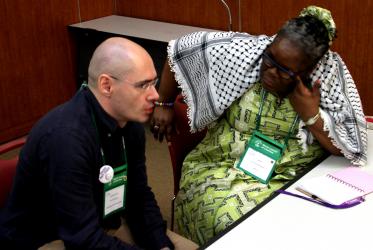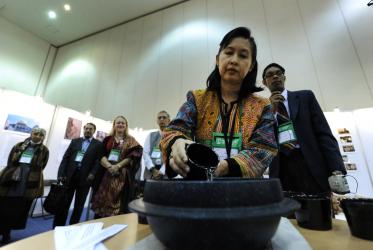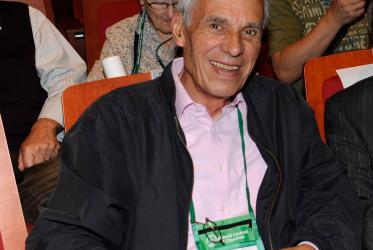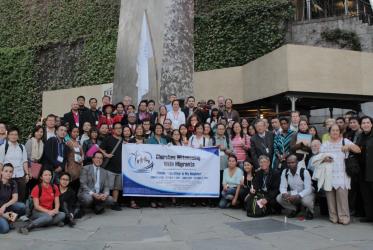Displaying 161 - 180 of 193
After Busan: A pilgrimage of justice and peace
29 January 2014
WCC Assembly addresses contemporary public issues
08 November 2013
Assembly renews churches’ commitment towards justice and peace
08 November 2013
Workshop in Busan addresses discrimination against sexual minorities
06 November 2013
Religious leaders highlight significance of water at WCC assembly
04 November 2013
Religion, Power, Politics: A conversation with Konrad Raiser
01 November 2013
Ecumenical Patriarch invokes prayers for WCC Busan assembly
30 October 2013
Peace with justice is central to WCC’s work
30 October 2013
Churches advocate upholding human dignity of migrants
14 October 2013










